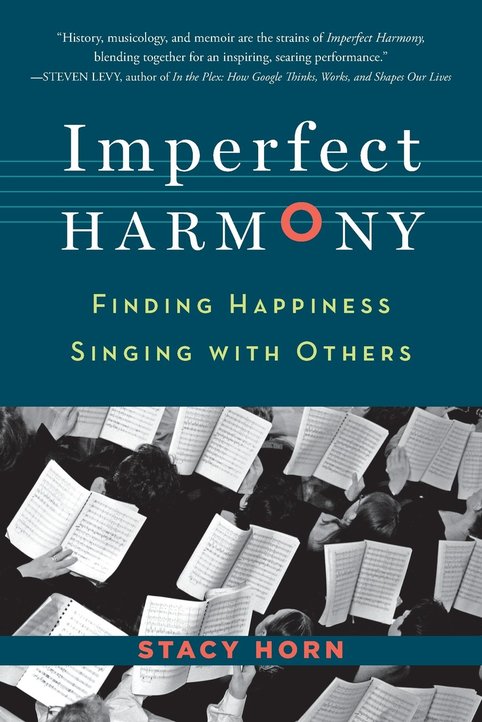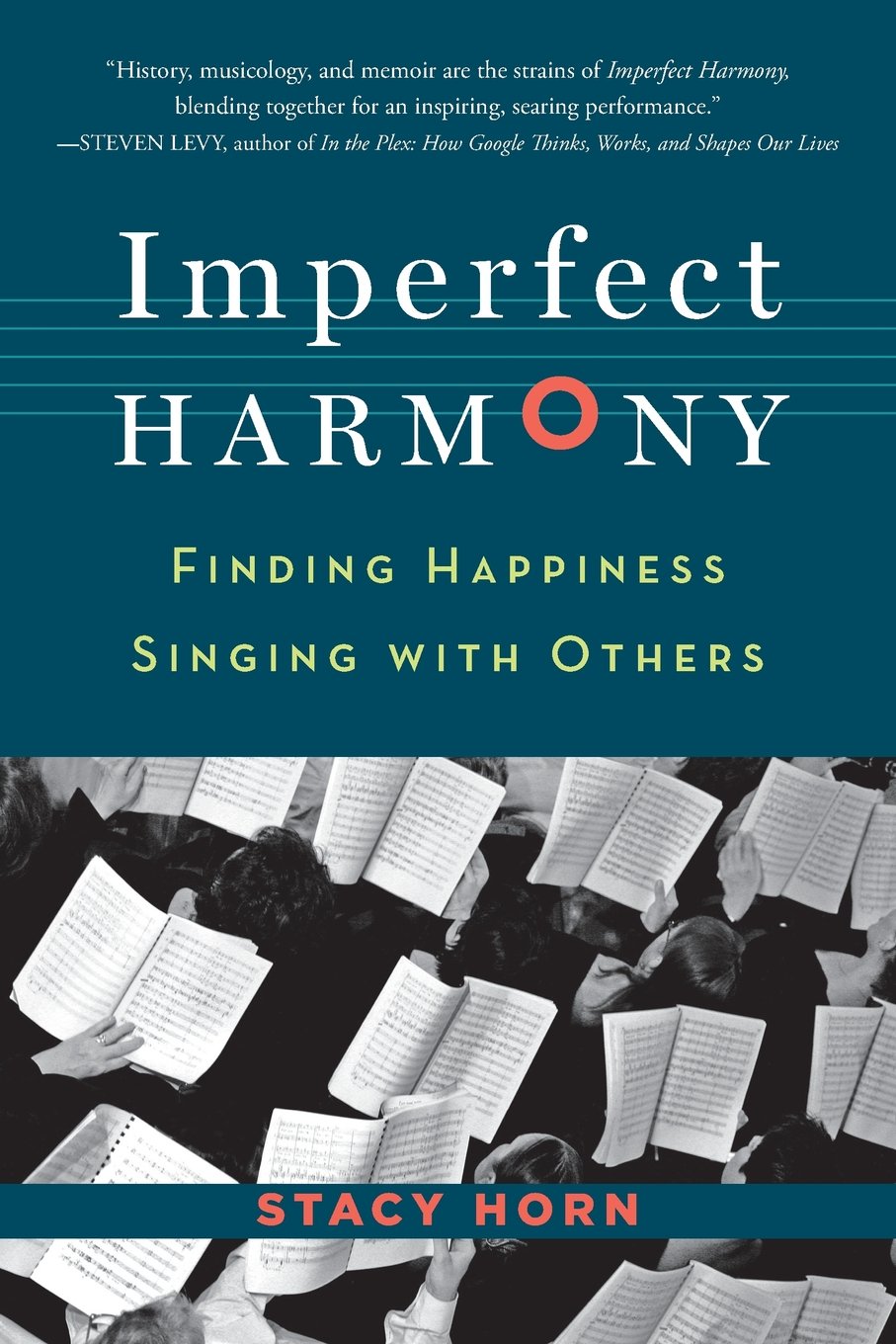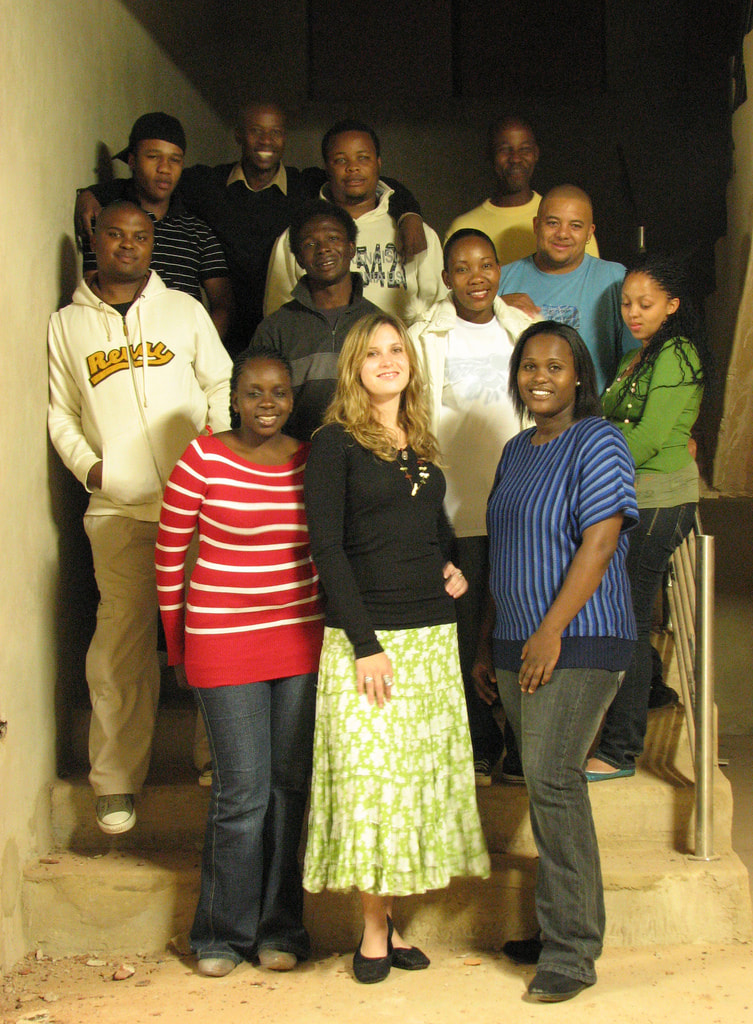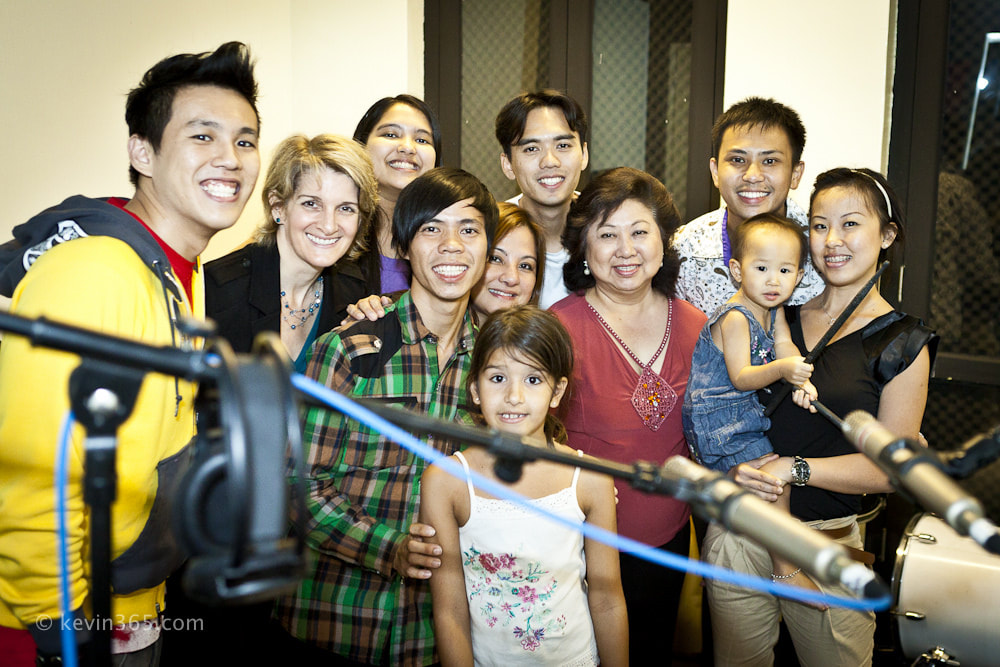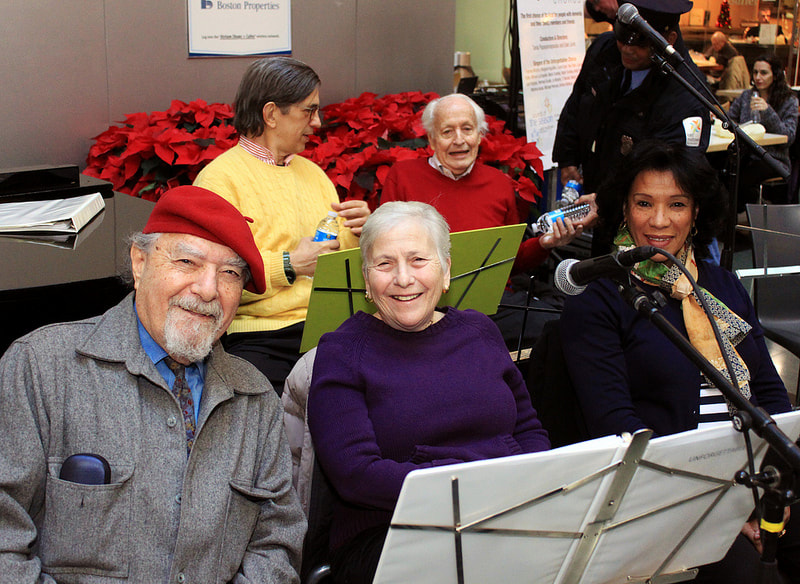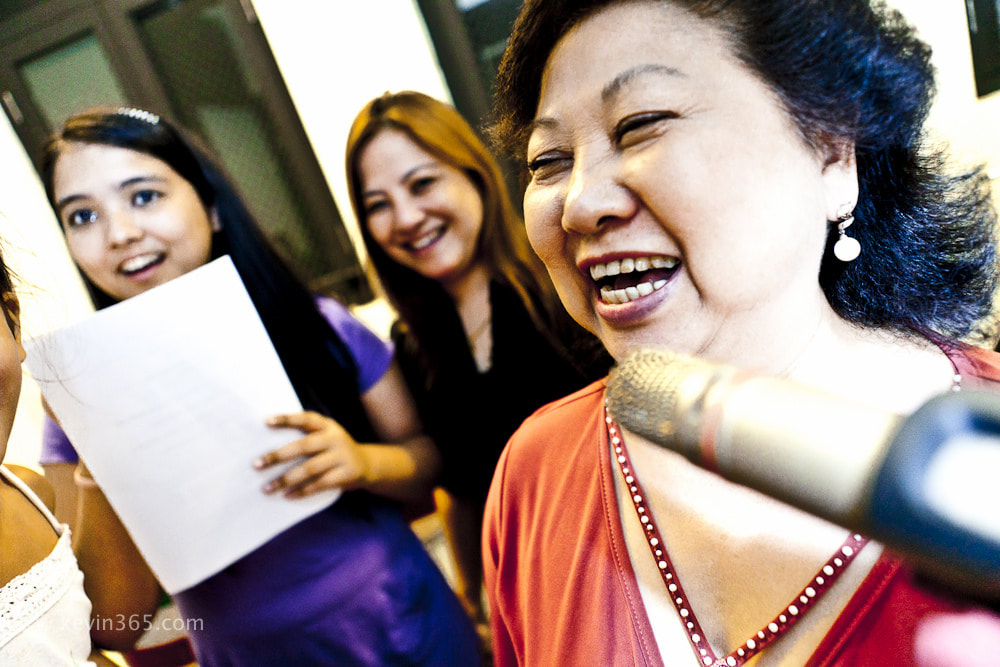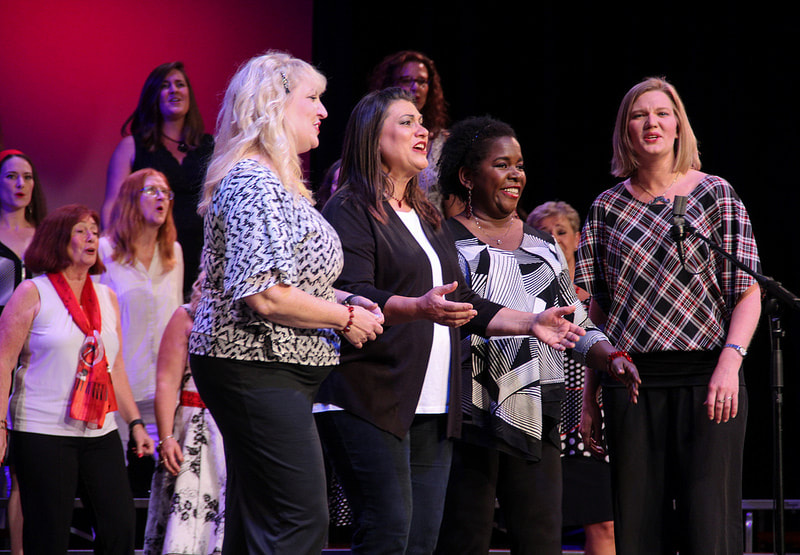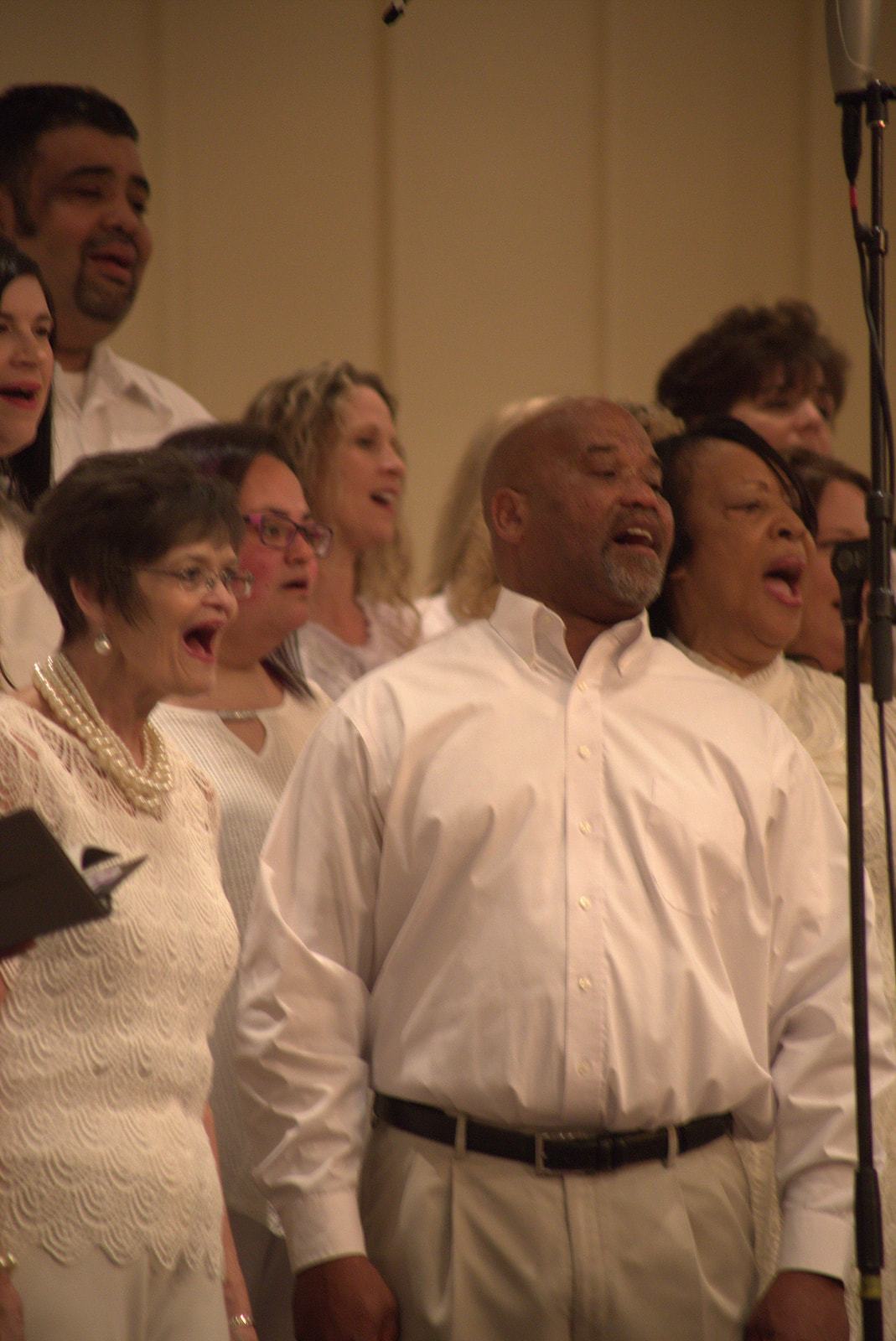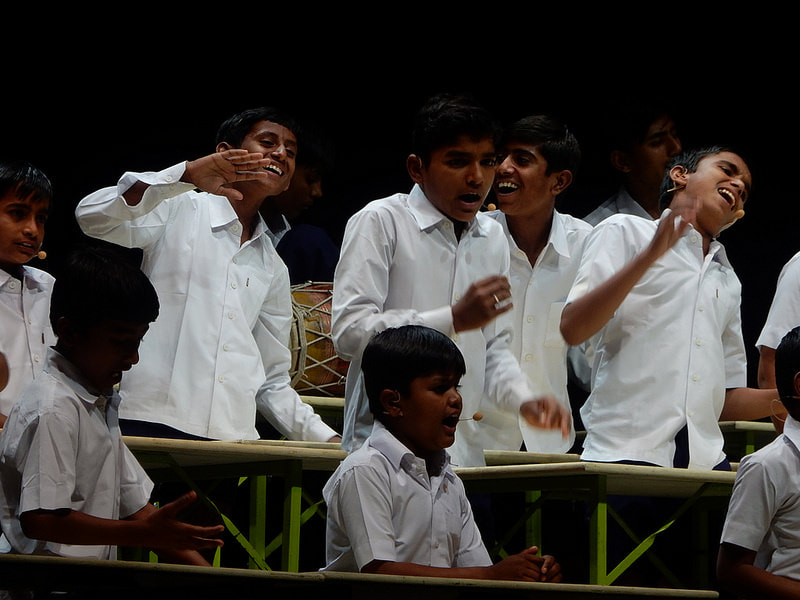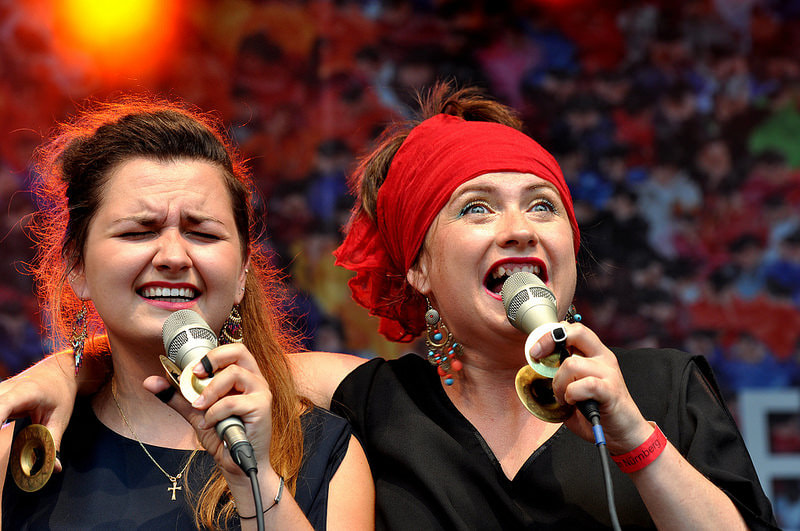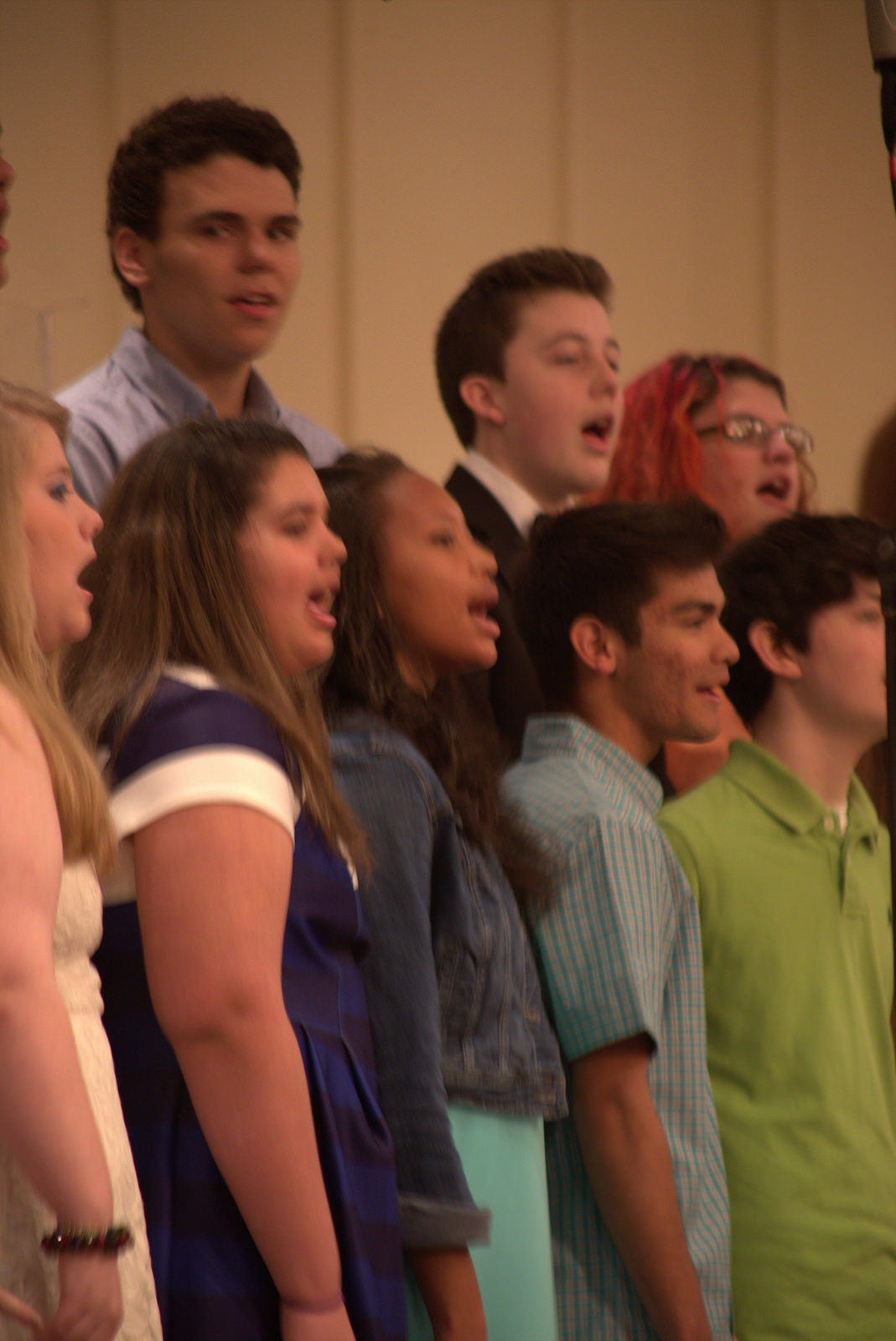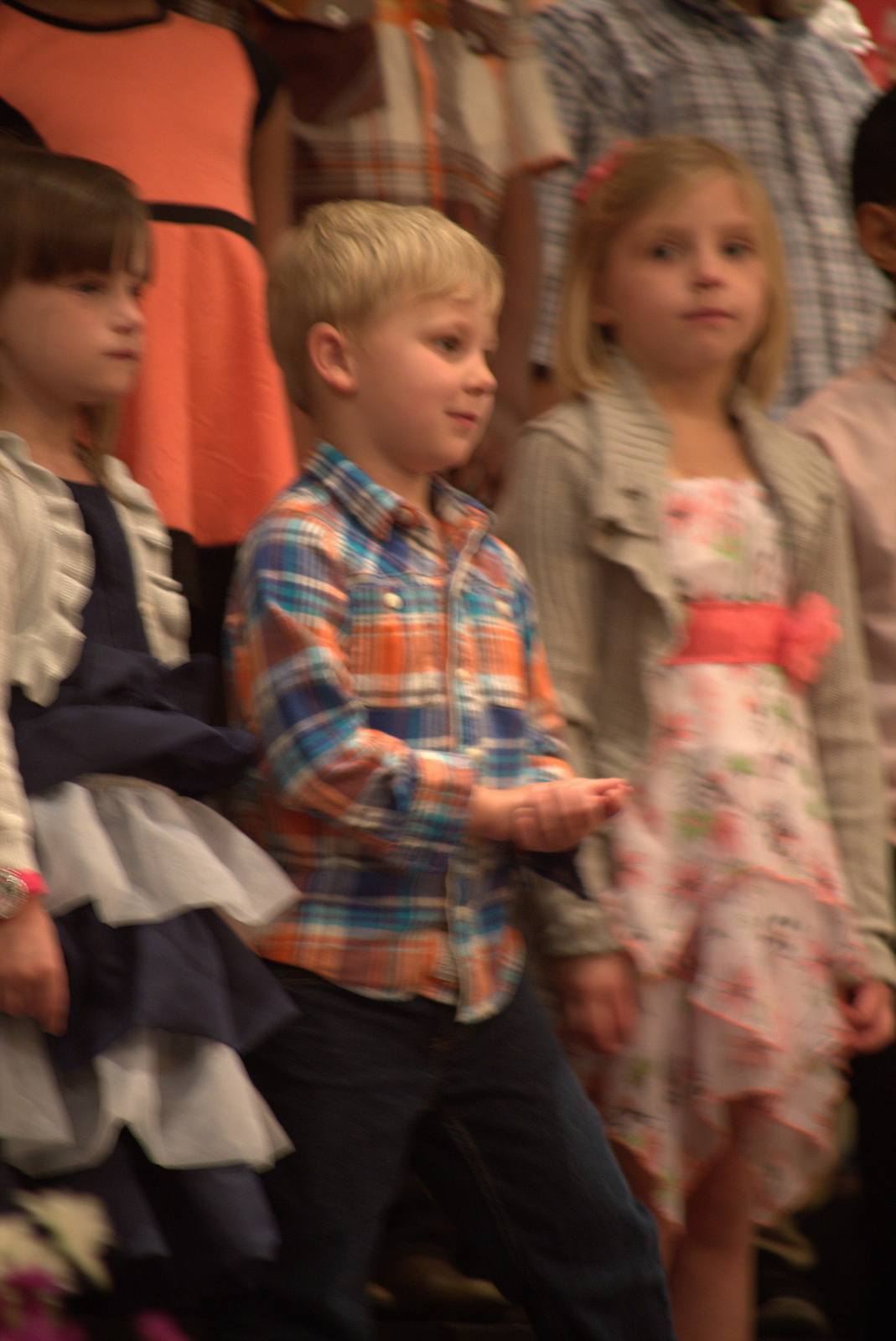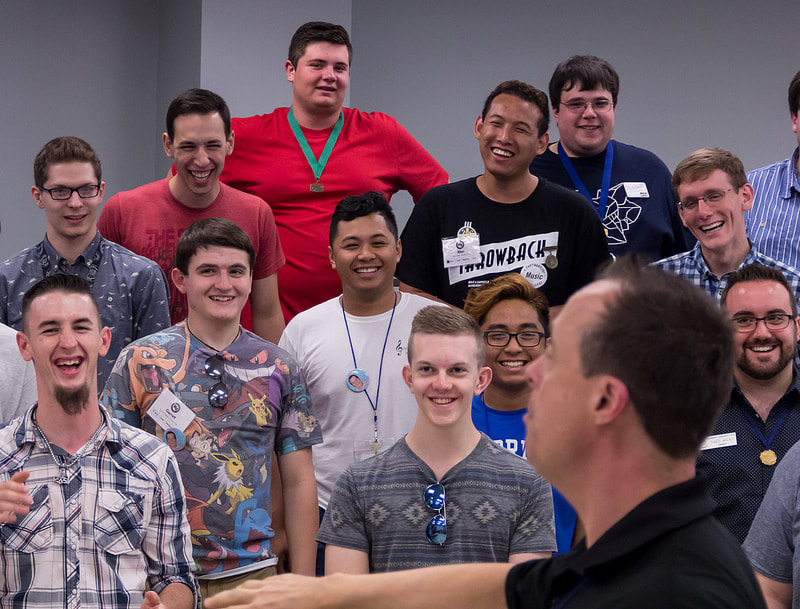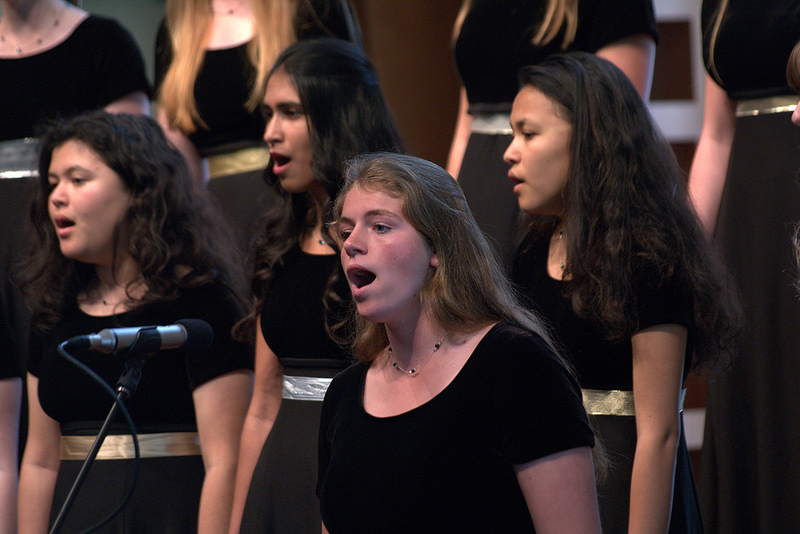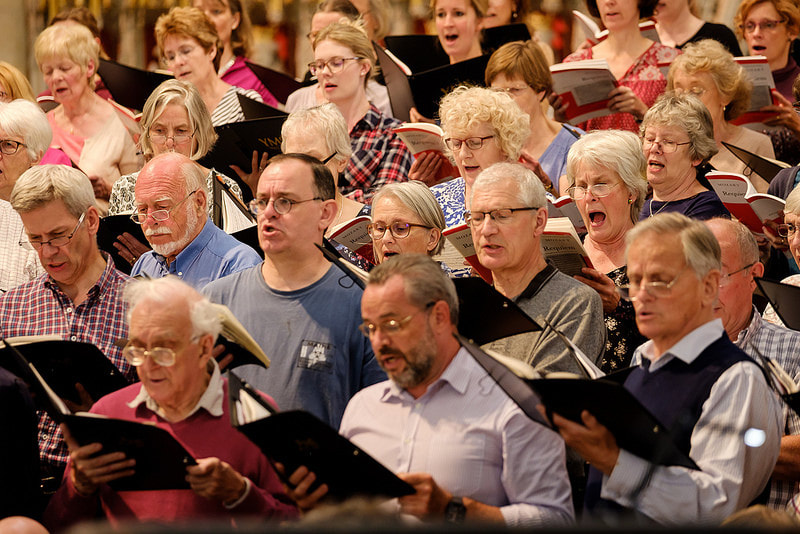I Feel Good When I Sing With Others
group singing as a spiritual and social practice
What the world needs now is not just love sweet love, but
more group singing, with attempts at harmony. It can happen
in choirs, elementary schools, nursing homes, restaurants,
libraries, houses of prayer, hospitals, workplaces, and bars.
We can "group sing" with help from the internet, too,
and with people who live in faraway places. See Smule.
The songs can be secular or sacred, sad or happy, but
it helps if you can tap your feet to them. Rhythm counts.
Harmonies count, too. Often the harmonies, however imperfect,
are much more important than the lyrics, because harmonies
provide immediate evidence, sonic not visual, that we can
live together in friendship, accepting our unique voices,
as our differences make the whole richer,
and we have a whole lot of fun along the way.
It's open horizons (process) theology
in engaged, auditory form.
Essay by Stacy Horn, author of Imperfect Harmony
QuotesI know of no other activity that gives so much and is this eminently affordable and accessible: Just show up for choir practice. Singing might be our most perfect drug; the ultimate mood regulator, lowering rates of anxiety, depression and loneliness, while at the same time amplifying happiness and joy, with no discernible, unpleasant side effects. The nerds and the church people had it right. (Stacy Horn, author of Imperfect Harmony)
Six Key Ideas1. Singing Together is fun and you don't really have to be "good." It is a personal and social practice that (so science suggests) lowers rates of anxiety, depression, and loneliness while cultivating a sense of belonging to something more than yourself.
|
Singing in Harmony
|
"Whether it’s a combination of prolactin and oxytocin, or some yet to be discovered neurochemical release, singing takes me to a place where what I thought was intolerable, like death, is somehow OK, which is insane, but there it is....I’m convinced the answer will be found in the study of harmony. Because the world doesn’t open up into a million shimmering dimensions of hope and possibility when I sing alone, or even with other people in unison. It happens when I’m surrounded by my fellow choristers, and all the different sounds we’re making combine to leave us thrumming in harmony—lit up together like fireflies flashing in synchrony by whatever masterpiece is currently racing through our brains, bodies, and hearts." (Stacy Horn, author of Imperfect Harmony)
|
Videos and Sounds
|
|
|
|
Encouraging Global Citizenship
A Roomful of Teeth and the Liberal Arts College
as Channels for Social Good
If you click on the Soundcloud link above, you will Part IV of Caroline Shaw's Partita for 8 Voices, sung by an experimental, grammy-award winning, vocal ensemble called Roomful of Teeth, started by Brad Wells in 2009. They are featured in the middle video above. In the video on the left you'll hear about the Hendrix College choir and in the video on the right.
The stated aim of a Roomful of Teeth is "to mine the expressive potential of the human voice" and, along the way, help create a family reunion: a family reunion of vocal styles, to be sure, but also a reunion of people around the world, all of whom are related to one another evolutionarily and spiritually. At such a reunion the distinctive styles still exist, but with each piece many of them are gathered together into a whole that is more than the sum of its parts.
As I listen to a Roomful of Teeth, I am reminded of the the Hendrix College choir. That's where I teach. The Hendrix choir is very, very good; fifteen among them traveled to Eastern Europe in the summer of 2016 to rehearse and perform at the Prague Choral Festival along with peer musicians from the United States. And all of them are inspired by the liberal arts ideal of service to community and the world.
The Hendrix example
At Hendrix we aim "(1) to promote capacities for understanding diverse cultures, (2) cultivate capacities for generous listening, especially to those who might otherwise not be heard, and (3) afford opportunities for mutual transformation through multicultural cooperation, all with the aim of creating an atmosphere that is welcoming, hospitable, and true to the best of liberal arts education." Those are the phrases in our statement on diversity and inclusion. Sounds like a family reunion to me.
And more than that, we are connected with the United Methodist Church, which is globally aware and socially progressive in many ways. With this connection we have a built-in invitation to promote social transformation for a more just and sustainable planet. It's in our statement of purpose: "Through engagement that links the classroom with the world, and a commitment to diversity, inclusion, justice, and sustainable living, the Hendrix community inspires students to lead lives of accomplishment, integrity, service, and joy." Here's the point: if we wanted to become a roomful of teeth, and perform music integrating multiple styles, and if we had the financial wherewithal to do this, my guess is that we'd do it. We would try to approximate their example.
World Loyalty, God, and Search for the Sacred Chord
Their spirit exudes what the philosopher Whitehead calls "world loyalty." World loyalty is just what is sounds like. It is emotional allegiance to the world as a whole, for the sake of peace on earth and peace with the earth. World loyalty does not eliminate the localized voices, it honors them and sees them as part of a larger fabric of live which makes the whole richer. This allegiance can be communicated in thought, word, deed, and song. Roomful of Teeth chooses song.
For theologians influenced by Whitehead, there is something holy about family reunions, especially reunions that seek to be as diverse and inclusive as possible. In this kind of theology, God is not a man on a throne or a bully in the sky, but rather a Life -- a cosmic Loyalty -- whose life includes the multiplicity: empathically feeling the feelings of all sentient beings. (See The Universe is God's Body.) On this view, the universe is part of God, which means God is many as well as one: like an ensemble on its way to a family reunion. If we listen with Whiteheadian ears, then, we hear Roomful of Teeth joining God in search of the sacred chord. Their hearts are in a very good place, in service to a deeper dream of beloved community, global style. In our frightened and hyper-nationalist world don't we need this? Yes, they are singing the dream in a finite way, but in their way they are trying to sing what God sounds like. And, who knows, perhaps they are approximating something of that sound. This makes best sense if we think cosmologically, metaphysically, recognizing the the universe itself does not yet fully exist, but is always on the way, always in process, always concrescing.
The Metaphysics of Choral Performance
Concrescence is AN Whitehead’s word for the process in which many influences from the past are gathered together and combined to create something new. The “something new” is an event, a happening, like a choral performance. The new event is never the final story. The universe is, in Whitehead’s words, a creative advance into novelty. The event – a performance, for example – makes way for subsequent gatherings of many into one.
These subsequent gatherings, these new concrescences, occur in the minds of listeners as well as performers. Recordings can enhance the possibilities for listeners to “gather the many into one” in their own way. In these subsequent gatherings, what was once a new event becomes part of the many that become one in subsequent happenings. The ultimate metaphysical principle is that the many become one and are increased by one, again and again, forever.
There is a theistic side to this. God is the adventure of the universe: the ongoing process amid which, again and again, the many of the entire universe are gathered into unity, a perpetual family reunion in the making. But our task, as members of the human family on a small and beautiful planet, is reunions, as best we can, by forming choral performances of our own, in which the many voices of the human family – and also perhaps the voices of other creatures, the chirping of birds, the whirring of the wind, the sounds of the sea – are heard together in myriad ways.
These choral performances include the sounds of our voices and the feelings within them, and yet, at least metaphorically speaking, all our actions can be choral performances, too. To add love where there was hatred, aliveness where there was stagnation, honesty where there was deception - these are choral performances, too. Understood deeply, the give and take of life on earth, its promises and its tragedies, is an ongoing choral performance.
If “religion” is a binding together of many into one, for the sake of pleasurable living and a widening of horizons into love, then choral performance is a deeply religious activity, God or no God. Wherever two or three people are gathered together to form family reunions, sung or shared in other ways, something beautiful occurs: a holy communion of sorts. There is a need today ot think along global lines, integrating all the sounds as best we can, for secularly sacred ends. Sing on. Try yodeling.
The stated aim of a Roomful of Teeth is "to mine the expressive potential of the human voice" and, along the way, help create a family reunion: a family reunion of vocal styles, to be sure, but also a reunion of people around the world, all of whom are related to one another evolutionarily and spiritually. At such a reunion the distinctive styles still exist, but with each piece many of them are gathered together into a whole that is more than the sum of its parts.
As I listen to a Roomful of Teeth, I am reminded of the the Hendrix College choir. That's where I teach. The Hendrix choir is very, very good; fifteen among them traveled to Eastern Europe in the summer of 2016 to rehearse and perform at the Prague Choral Festival along with peer musicians from the United States. And all of them are inspired by the liberal arts ideal of service to community and the world.
The Hendrix example
At Hendrix we aim "(1) to promote capacities for understanding diverse cultures, (2) cultivate capacities for generous listening, especially to those who might otherwise not be heard, and (3) afford opportunities for mutual transformation through multicultural cooperation, all with the aim of creating an atmosphere that is welcoming, hospitable, and true to the best of liberal arts education." Those are the phrases in our statement on diversity and inclusion. Sounds like a family reunion to me.
And more than that, we are connected with the United Methodist Church, which is globally aware and socially progressive in many ways. With this connection we have a built-in invitation to promote social transformation for a more just and sustainable planet. It's in our statement of purpose: "Through engagement that links the classroom with the world, and a commitment to diversity, inclusion, justice, and sustainable living, the Hendrix community inspires students to lead lives of accomplishment, integrity, service, and joy." Here's the point: if we wanted to become a roomful of teeth, and perform music integrating multiple styles, and if we had the financial wherewithal to do this, my guess is that we'd do it. We would try to approximate their example.
World Loyalty, God, and Search for the Sacred Chord
Their spirit exudes what the philosopher Whitehead calls "world loyalty." World loyalty is just what is sounds like. It is emotional allegiance to the world as a whole, for the sake of peace on earth and peace with the earth. World loyalty does not eliminate the localized voices, it honors them and sees them as part of a larger fabric of live which makes the whole richer. This allegiance can be communicated in thought, word, deed, and song. Roomful of Teeth chooses song.
For theologians influenced by Whitehead, there is something holy about family reunions, especially reunions that seek to be as diverse and inclusive as possible. In this kind of theology, God is not a man on a throne or a bully in the sky, but rather a Life -- a cosmic Loyalty -- whose life includes the multiplicity: empathically feeling the feelings of all sentient beings. (See The Universe is God's Body.) On this view, the universe is part of God, which means God is many as well as one: like an ensemble on its way to a family reunion. If we listen with Whiteheadian ears, then, we hear Roomful of Teeth joining God in search of the sacred chord. Their hearts are in a very good place, in service to a deeper dream of beloved community, global style. In our frightened and hyper-nationalist world don't we need this? Yes, they are singing the dream in a finite way, but in their way they are trying to sing what God sounds like. And, who knows, perhaps they are approximating something of that sound. This makes best sense if we think cosmologically, metaphysically, recognizing the the universe itself does not yet fully exist, but is always on the way, always in process, always concrescing.
The Metaphysics of Choral Performance
Concrescence is AN Whitehead’s word for the process in which many influences from the past are gathered together and combined to create something new. The “something new” is an event, a happening, like a choral performance. The new event is never the final story. The universe is, in Whitehead’s words, a creative advance into novelty. The event – a performance, for example – makes way for subsequent gatherings of many into one.
These subsequent gatherings, these new concrescences, occur in the minds of listeners as well as performers. Recordings can enhance the possibilities for listeners to “gather the many into one” in their own way. In these subsequent gatherings, what was once a new event becomes part of the many that become one in subsequent happenings. The ultimate metaphysical principle is that the many become one and are increased by one, again and again, forever.
There is a theistic side to this. God is the adventure of the universe: the ongoing process amid which, again and again, the many of the entire universe are gathered into unity, a perpetual family reunion in the making. But our task, as members of the human family on a small and beautiful planet, is reunions, as best we can, by forming choral performances of our own, in which the many voices of the human family – and also perhaps the voices of other creatures, the chirping of birds, the whirring of the wind, the sounds of the sea – are heard together in myriad ways.
These choral performances include the sounds of our voices and the feelings within them, and yet, at least metaphorically speaking, all our actions can be choral performances, too. To add love where there was hatred, aliveness where there was stagnation, honesty where there was deception - these are choral performances, too. Understood deeply, the give and take of life on earth, its promises and its tragedies, is an ongoing choral performance.
If “religion” is a binding together of many into one, for the sake of pleasurable living and a widening of horizons into love, then choral performance is a deeply religious activity, God or no God. Wherever two or three people are gathered together to form family reunions, sung or shared in other ways, something beautiful occurs: a holy communion of sorts. There is a need today ot think along global lines, integrating all the sounds as best we can, for secularly sacred ends. Sing on. Try yodeling.
The Fat Soul Band and the Four J's
Promoting Singalong at Bars and Senior Citizen Centers
in Arkansas, guided by Process (Open Horizons) Theology
|
|
Here's how Wikipedia describes sing-along. "Sing-along, also called community singing or group singing, is an event of singing together, less formally than choir singing. One can use a songbook. Common genres include folks songs, patriotic songs, hymns and drinking songs. Children across the world usually sing nursery rhymes together." True, choir singing is more formal, but for our purposes please consider choir singing as one form of group singing, and singing with others in a bar, restaurant, party, as another kind. All involve being a part of something more than yourself, and enjoying it.
|
More from a Roomful of Teeth
Interview with Roomful |
Tiny Desk Performance |
At the Grammy's |
Links for Learning more about
Singing with Others from the BBC Series
on The Choir
|
|
